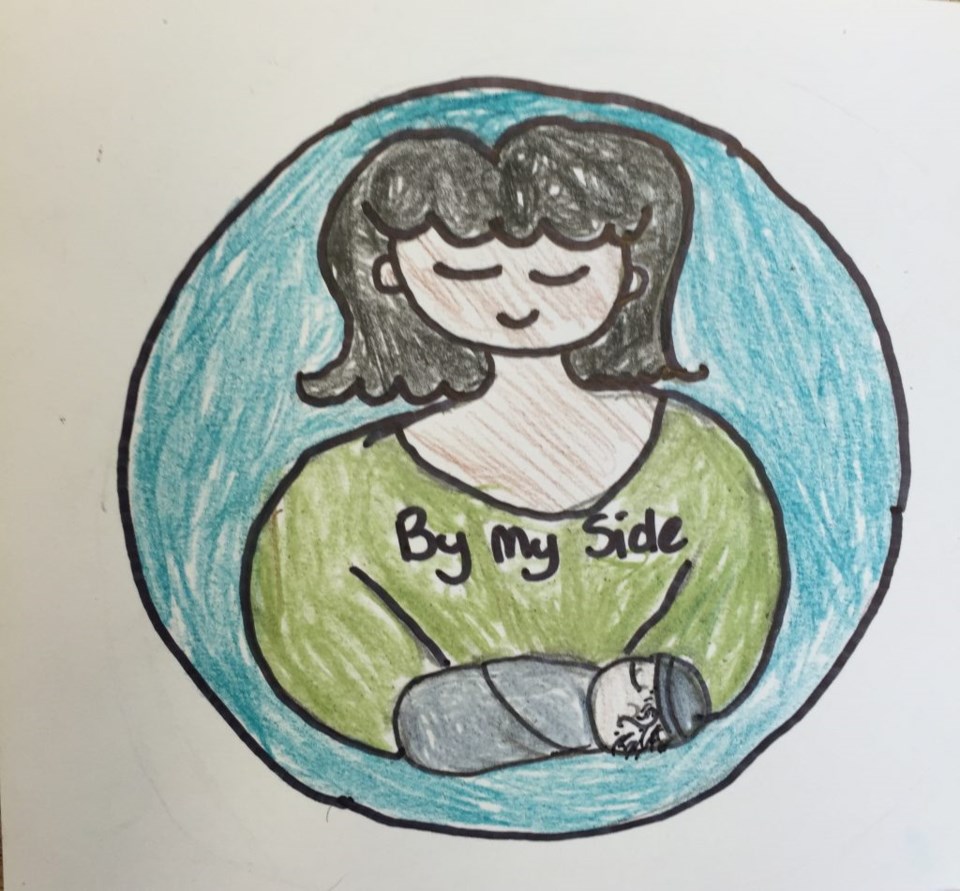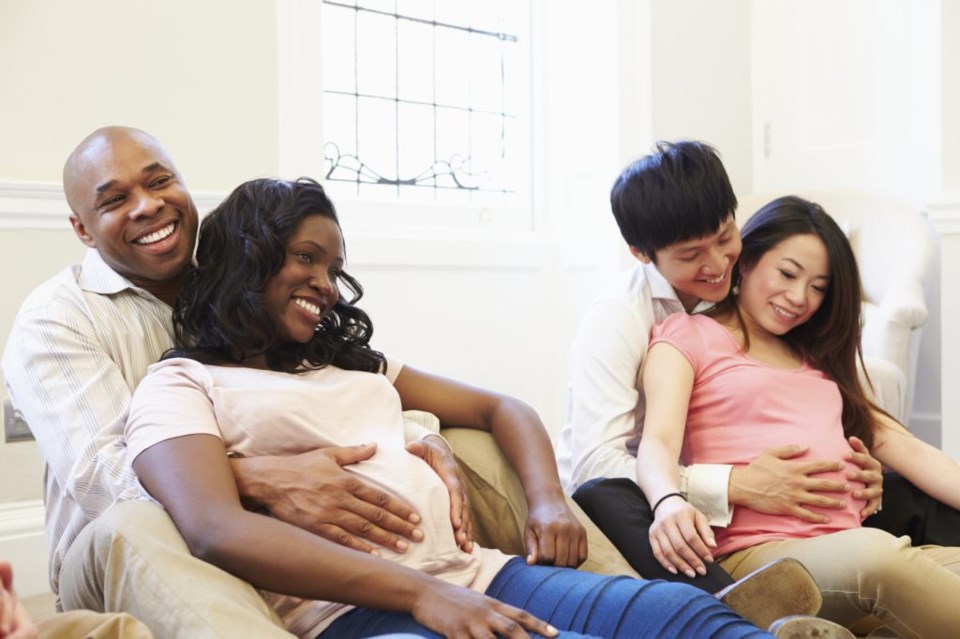
By Teleah Slater
If anyone had asked me two months ago if I ever wanted to have children, to pass down my genes, carry a child, and give birth, my answer would be a firm and unapologetic no. Besides the fact that raising another human being is an immense and life changing responsibility, there would be no way on this green earth that I would ever want to go through the completely outlandish and unreasonable process that would bring that baby into the world.
Even though as a student of public health I learned the stages of pregnancy and the process of birth, and how the body is very well equipped and can adapt well for this type of activity, I still wouldn't want anything to do with it. I mean seriously, a woman's body has to do what? And push how much from where? Oh no, this path was not for me.

I decided that I would just be that cool aunt that saluted the brave souls who would go through this ordeal, especially naturally. So while I still can't walk past a little bundle of joy without cooing how cute they are, I told my mother that she should focus her goals for grandchildren on my brother.
Since then, however, I've had huge a shift in my thinking about pregnancy and childbirth. Two months ago I started my internship at Healthy Start Brooklyn, a program that aims to help improve maternity and infant health in central and east Brooklyn, and was exposed to a way of thinking about pregnancy and childbirth that actually didn't seem terrifying.
Most of the time for low risk pregnancies, women are not in crisis and often do not need medical intervention. That it is more than stretchmarks and bathroom runs and biting down on a cord in pain. They approached the whole concept in a completely different way and helped me see pregnancy and labor as natural physiological processes that the human body is built for. But it also made me wonder why it is met with fear. Considering that the vast majority of female bodied people give birth at least once in their lives, shouldn't we as a culture be less fearful of something so familiar?
Well thinking about it, this anxious attitude towards maternal health does actually make sense.

As childbirth moved from the home into hospitals in the beginning of the 20th century, most people lost their exposure to the realities of labor. Our most common exposures to that process are now through media, via movies or television which tend to be exaggerated for the sake of drama or comedy.
The longest and most calm parts of labor are rarely shown, it is always the pushing and screaming and snapping at the man "who will never get to have you again" or on the other side a complication occurs and suddenly the mother is covered in blood and rushed into surgery. And in terms of pregnancy, the expecting mother is the favorite butt of every joke: her mood swings, her appetite, the way she reacts to her changing body. She is to be coddled and not taken seriously.
Having these images all your life could of course lead to fear and even shame to something as natural and human as pregnancy and childbirth, even if someone wants children. Even the medical model looks at pregnancy as a pathology, and childbirth as a crisis waiting to happen, responding to normal occurrences with over invasive interventions. Taking all this into consideration, what other reactions are people supposed other than fear? And I guess the more important question is; how can it be changed?
I personally think a good place to start is having a more balanced and realistic representation of pregnancy and birth in the media. For every five "crazy" moms-to-be or uncontrollably screaming woman in labor, maybe there should be one or two that are not used for a cheap grab at suspense or comedy.
Or even more, I mean if people can't make a show interesting without using tired clichés then they aren't very good writers are they? But again, the media is not entirely to blame, there also needs to be a shift in the way that doctors view and practice maternal health. The medical model of care should be amended to reduce unnecessary routine interventions for low-risk pregnancies.
But even more than those two things, I think it is important that pregnant mothers are able to get correct and comprehensive information from a trusted, calm, and realistic source. The internet has made finding information much easier than in previous years, but with all the articles and opinion pieces and forums out there, it can be a little overwhelming. Books are great too, but they can only cover so much.

Pregnant women should have access to a knowledge base that they feel comfortable asking questions to and trust their answers, even if it takes more time than a ten minute pre-natal appointment. The more accurate and honest information a pregnant mother receives, the more prepared they feel for their labor, and also the more they can share with others. Combined with better images of pregnancy and birth and more appropriate care, this could change the culture into a healthier environment for pregnant and would-be-pregnant women.
As for me, I still don't see children in my future, but that may change. Who knows, maybe in ten years if all my recommendations are implemented, I might want to go through the not-so-scary process of bringing a fat-cheeked little cutie pie into the world.
But for now, I give my respect to all the mothers out there as we all work to change the perception of pregnancy for the next generation.



